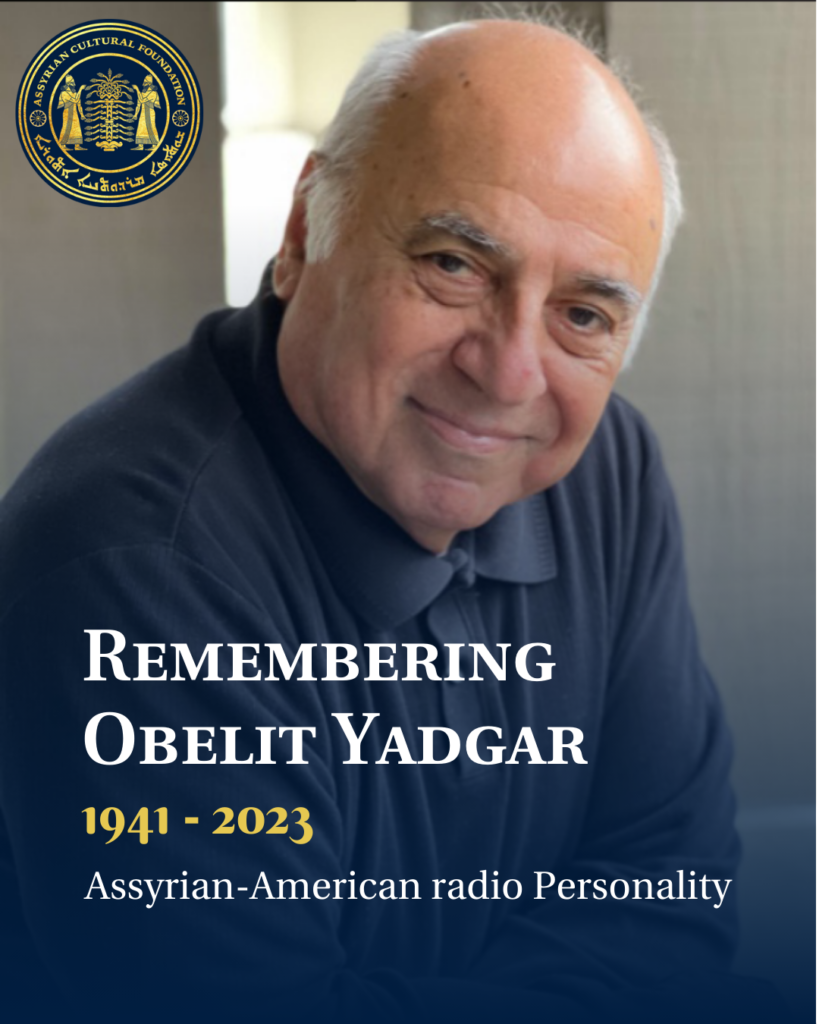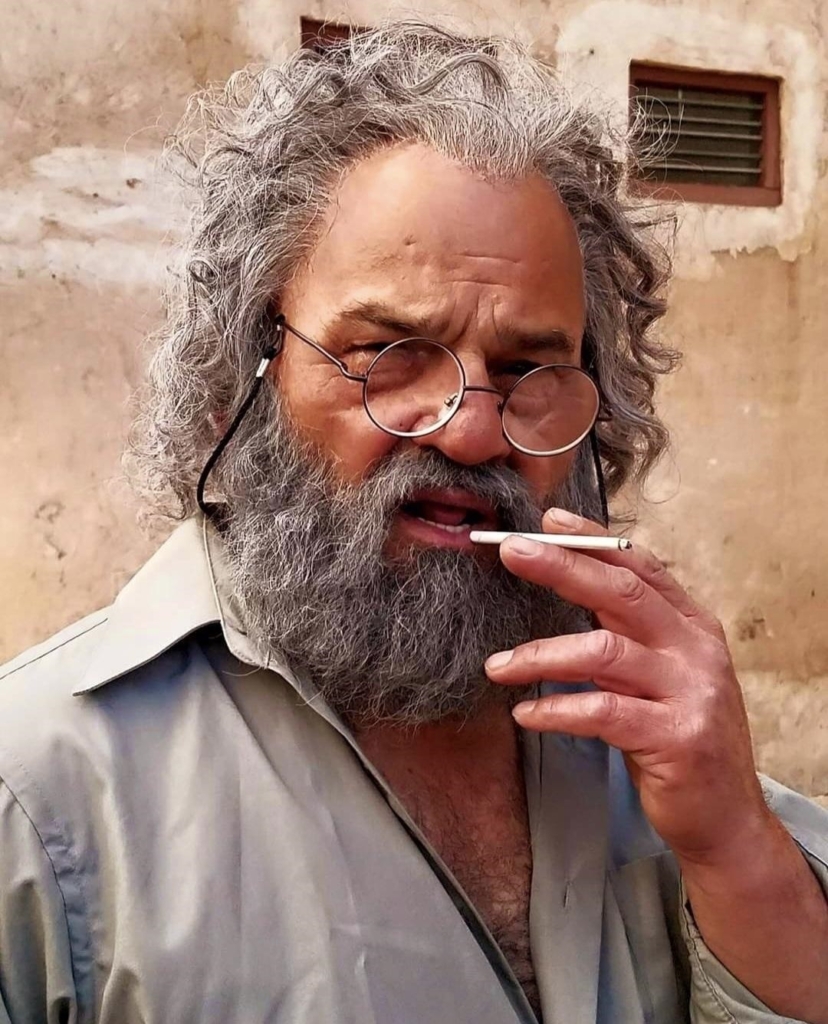Remembering Obelit Yadgar
Date: September 8, 2023

The Assyrian Cultural Foundation deeply mourns the passing of Obielit Yadgar, a cherished voice in the Assyrian community and an honorary guest at our recent Assyrian Renaissance Concert. His dedication to the arts and his unparalleled passion for storytelling have left an indelible mark. As we reflect on his invaluable contributions, let his legacy inspire and guide future generations.

Obielit (Obie) Yadgar’s journey began in Baghdad, Iraq, where he was born. A year later, his family moved to Tehran, Iran, where he spent the majority of his younger years. Later on, Yadgar and his brother immigrated to the United States. Though he initially settled in New York, it was in Chicago where he completed his high school education and made the decision to become a writer, inspired by his great-uncle’s legacy.

The young Obie Yadgar often observed his great-uncle, renowned Assyrian writer and historian Rabi Benyamin Arsanis, hunched over his desk writing. That same passion drove Yadgar to pursue his own writing career, in which he published two novels and a book of humor: Will’s Music, Whistling to Cairo, and Obie’s Opus, all available on Amazon. In addition, he made significant contributions to the Zinda magazine in the form of essays and short stories. In Yadgar’s own words, “These essays and short stories are slice-of-life pieces on the Assyrian world.”

Following a tour of duty as a U.S. Army combat correspondent in Vietnam, Yadgar began a distinguished career as a classical music broadcaster. He worked for many years in Chicago, though it is Milwaukee where he established his home and a name for himself. His program “Obie’s Opus” played on Sundays from 8 to 9 A.M. on WMSE Milwaukee, 91.7 FM.

He also hosted Musing with My Samovar, presented by the Assyrian Podcast.

Though he is no longer with us, both broadcasts can be streamed via one’s smart device.
Written by: Sarah Gawo & Cassandra Ledger
Published by: Brian Banyamin



